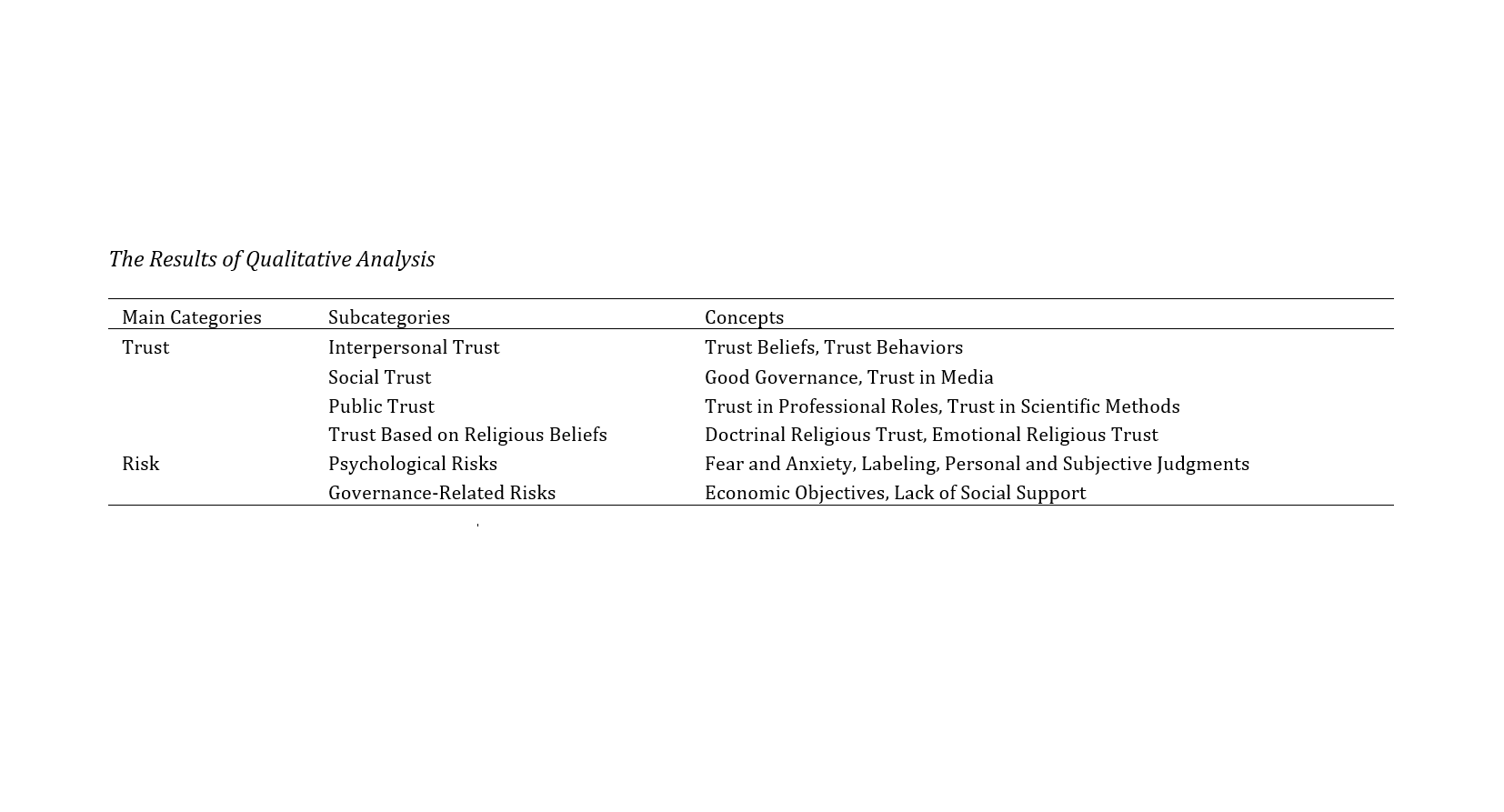A Sociological Analysis of Trust and Risk in the Social Lifeworld
Keywords:
Social trust, Risk, COVID-19 crisis, PhenomenologyAbstract
Today, the COVID-19 pandemic has become a social issue in Iran and across the globe. The present study aims to analyze the sociological aspects of trust and risk during the pandemic and the intersubjective experiences of participants in this context. To this end, a qualitative research method, specifically descriptive phenomenology, was employed. The statistical population of this study included all citizens in two provinces: Isfahan and Chaharmahal and Bakhtiari. In this study, phenomenological in-depth interviews were conducted with 39 individuals selected through purposive sampling until theoretical saturation was achieved. The interviews were analyzed using the seven-step method of Colaizzi, and data collection and analysis were conducted simultaneously. Initially, the interviews were transcribed verbatim, followed by the preparation of a written report of the interviews. In the next stage, meaning units were extracted as sentences from the interview reports and were coded accordingly. Finally, after categorizing and merging similar cases, the dimensions of trust and risk were classified into six main categories and 13 subcategories. Based on the findings of the study, four main categories along with eight subcategories of trust were identified as follows: 1) Interpersonal trust, including the subcategories of trust beliefs and trust behaviors; 2) Social trust, including the subcategories of good governance and trust in media; 3) Public trust, including the subcategories of trust in professional roles and trust in scientific methods; and 4) Trust based on religious beliefs, including the subcategories of faith-based trust and emotional trust. Regarding risk, based on the intersubjective experiences of participants, two main categories comprising five subcategories were identified: 1) Psychological risks, including the subcategories of fear and anxiety, labeling, and personal and subjective judgments; and 2) Governance-related risks, including the subcategories of economic risks and social support.
Downloads






